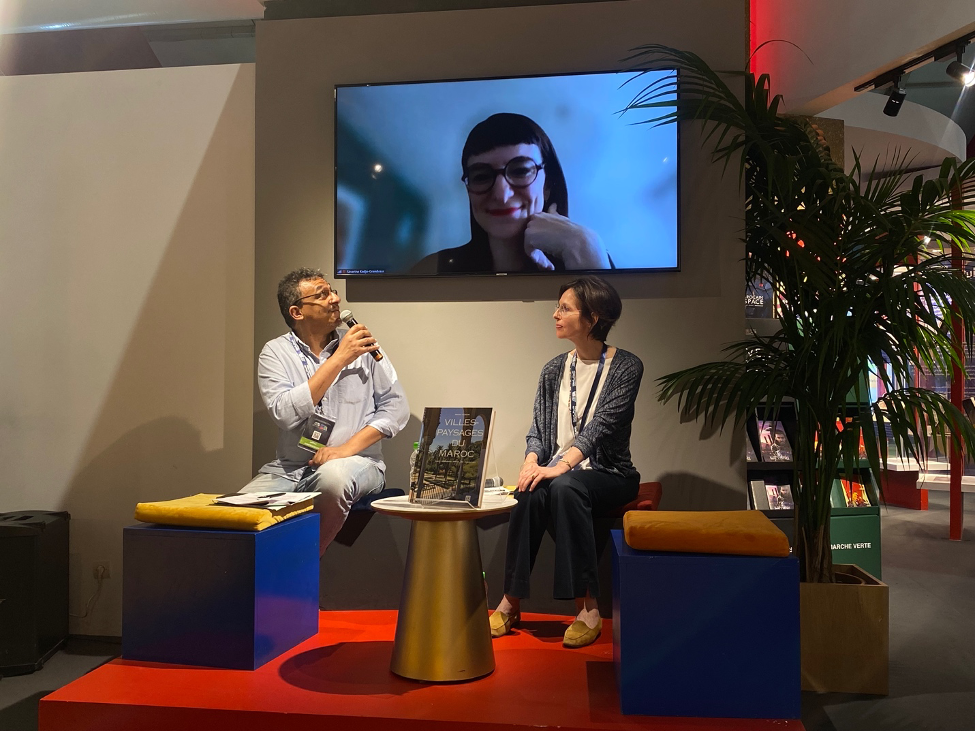
The philosophy of the living was the intriguing subject of discussion at the Ministry of Youth Culture and Communication pavilion during the ongoing international publishing Book Fair (SIEL)on Tuesday, 6th June.

The philosophy of the living was the intriguing subject of discussion at the Ministry of Youth Culture and Communication pavilion during the ongoing international publishing Book Fair (SIEL)on Tuesday, 6th June.

The philosophy of the living was the intriguing subject of discussion at the Ministry of Youth Culture and Communication pavilion during the ongoing international publishing Book Fair (SIEL)on Tuesday, 6th June.
The panel featured two esteemed speakers: Severine Kodjo-Grandvaux, a philosopher, writer, and journalist known for her research on the connection between humans and the living world, and Mounia Bennani, an architect-landscape designer and writer.
The meeting began with a brief introduction to the philosophy of the living. A concept that gained significant prominence in ecological thinking, particularly among those who strive to address the alarming environmental issues.
"Today, humanity is exploitative and domesticating," Severine Kodjo-Grandvaux asserted, highlighting how contemporary humans have lost their connection with nature in its organic form.
Expanding on this idea, Mounia Bennani explained that humans tend to focus on the superficial beauty of nature, thereby distancing themselves from a genuine connection with the world as it naturally exists.
Ms. Bennani argued that the invention of landscape designs and the creation of gardens serve as evidence of this detachment, as they falsify the authentic expression of nature and create a divide between humans and the world. This detachment has resulted in an obsession with unrealistic natural aesthetics. "We no longer allow a flower to exist in its natural state because it may not conform to our notions of beauty" she stated.
Ms. Bennani shared her personal endeavor to create pleasant spaces for both “humans” and “non-humans”, that preserve the organic essence of nature. Highlighting that "Today, we lack the organic link with nature." Considering the current environmental challenges “ our relationship with nature has become a conflict rather than harmony” she added.
“The philosophy of the Living encompasses a notion that is more inclusive than nature or environment less clichéd than wilderness and less scientific than biodiversity." Ms. Severine underlined.
